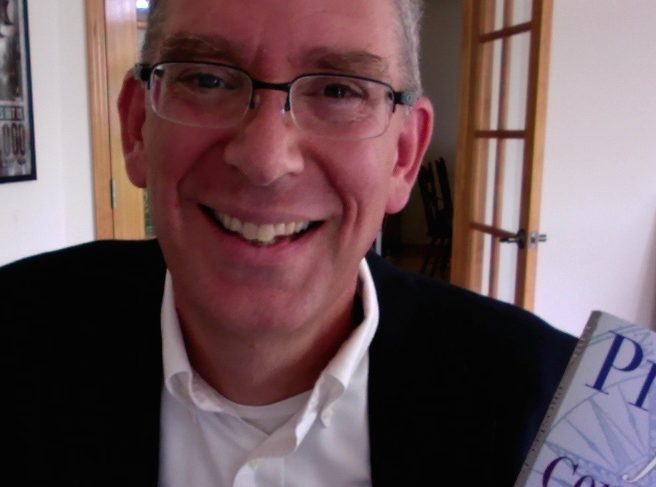Introducing ‘The Moot’

In the gloriously barbaric world of Anglo-Saxon history, legend, and myth, The Moot was a meeting of creative minds and families. Its task? To ponder and analyze this issue or that, and, ultimately, to decide matters of the utmost importance to the larger Christiana res publica. It also vitally served as the best means to bring the news of one shire or duchy or free city to all the rest. In a time polycentric authorities, absent our modern and post-modern lightning-fast communications, The Moot brought order and stability to the medieval Anglo-Saxons and Scandinavians, but it also gave its respective communities time to contemplate that which most needed contemplation.
One can, at least in the mythological tradition of the Burkean Whigs, ultimately trace The Moot to the Witan, to Parliament, and, across the Atlantic, to Congress.
Horrified by the inhumane ideologies rising powerfully in the 1930s, English Quaker J.H. Oldham called together a new moot to discuss ways in which tradition and faith could combat political heresy and brutality. Among those who joined his Moot were T.S. Eliot, Owen Barfield, Christopher Dawson, Karl Mannheim, Reinhold Niebuhr, and Michael Polanyi. As a functioning body, the Moot debated among its members, corresponded with men such as Dietrich Bonhoffer, and published a wonderful irregular newsletter, simply called The Christian News-Letter, edited usually by Oldham and sometimes by Eliot. In one of the most important issues, dated July 24, 1940, Inkling Owen Barfield explained that National Socialism and Communism could be defeated only by challenging their ideas with better ones. Such ideas could never, appropriately or effectively, arise from any one person but only from a group of persons, each working in harmony toward the shared goal of a more decent humanity. Those opposed to ideology, however, could not and should not create a counter ideology. Instead, those of good will and like mind, should pursue the “sober effort to build up and maintain a common stock of thought rather than to startle with a series of sparkling individual contributions—like a commonwealth of the spirit, in which there is no copyright.”
As president (since August 1, 2017) of The American Conservative, I hope to situate explicitly us, our writers, and our readers, within the western framework of a Republic of Letters, beginning with Heraclitus and Herodotus and ending only when God so decides. While, as my libertarian side knows all too well, property rights and individual genius matter profoundly, I agree with Barfield that we must strive for a “commonwealth of the spirit,” connecting us to all other like-minded persons and communities of the present, but also to all of the greatest of the past, and to those we can only imagine in the future. Cicero would have known this as a Cosmopolis, the city of the god and all of humanity, held together by the common divine language, Reason, whereas St. Augustine would have called this the sojourning City of God, trapped within time, and, hence, in the City of Man. The humanists of the ancient through the medieval and early modern worlds, though, would have referred to this as a “republic of letters.”
As a magazine, The American Conservative—especially under the careful direction of the current and previous editors—has done this brilliantly. As such, I see this column, “The Moot,” as merely a more direct manifestation of the ambassadorial and clearing-house function of the conservative and libertarian movements. Through this column, I hope to announce and comment on any “thing” happening in the non-leftist world. That is, I hope to bring news of books published, conferences held, paintings painted, Kickstarter projects initiated, speeches delivered, albums released, organizations fighting the good fight, and courses being taught, and, therefore, connecting one thing to another.
If you have news of interest to the conservative and libertarian worlds at large, please let me know at my bbirzer@theamericanconservative.com. Make sure you include the how, what, where, when, and why—when possible and appropriate. These things can be in the recent past or in the far future. Include a sentence or two explaining why your item matters. Also, please know, that unless otherwise indicated, I will assume any part of your notice sent to me is quotable. In the subject line, please note something akin to “News for The Moot.”
Finally, and critically, the “thing” does NOT need to be directly or explicitly conservative or libertarian, merely of interest. So, I’m happy to announce that Notre Dame scholar Patrick Deneen has a new book coming out, that one of the two greatest rock bands in the world today, Big Big Train, has a Christmas single coming out, and that portrait artist Anna Rose Bain just won a major award for her work. While Deneen’s book is explicitly conservative, Big Big Train and Bain are simply (and beautifully) creative. After all, we must seek whatever is excellent, whatever its origins or manifestations.
I very much look forward to hearing from you.
Yours, Brad Birzer
President, The American Conservative
Comments